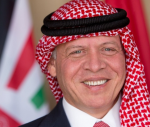You are here
The next phase of climate action
Mar 22,2017 - Last updated at Mar 22,2017
Last November, while much of the world was trying to unpack Donald Trump’s election as US president, the United Nations Climate Change Conference (COP 22) was held in Marrakesh, Morocco.
Participants from all over the world, including 38 heads of state and government, came together to create a plan for implementing the 2015 Paris climate agreement, which aims to limit global warming to well below 2oC above pre-industrial levels.
It was an important step forward, but the issue remains far more complex — and politically charged — than most would care to admit.
The global cooperation that has emerged lately is certainly welcome. But, while teamwork is critical to success, so is recognition of the distinct roles and responsibilities of governments in the industrialised and developing worlds.
The industrialised countries have long produced massive amounts of emissions and other kinds of pollution, while consuming a huge share of the world’s resources — including 90 per cent of the world’s water — all in the name of their own development.
As a result, these countries now enjoy high standards of living and food security.
The situation for developing countries is very different.
Not only have they contributed substantially less to climate change; they are also suffering its worst effects, including food shortages and the loss of livelihoods, brought about by increasingly extreme and frequent weather events like floods and droughts.
Africa is paying a particularly heavy price.
Though the continent is responsible for only 4 per cent of greenhouse-gas emissions, it is suffering more than any other continent from climate change, as rising temperatures, shifting seasons, and proliferating droughts deplete biodiversity, destroy ecosystems, and undermine security and stability.
Lake Chad, once an immense reservoir of fresh water, has lost around 90 per cent of its surface area since 1963 and is at risk of drying out permanently.
Four million hectares of forest disappear every year in Africa — double the world average.
Agriculture, predominantly subsistence farming, employs over 60 per cent of the African workforce, implying widespread destruction of livelihoods, to say nothing of increased food insecurity as crops are disrupted.
Indeed, Africa’s agricultural yields could be reduced by 20 per cent from now until 2050, as the population grows twofold.
Entire sections of Africa’s coastline, including almost one-third of its coastal infrastructure, will be submerged.
Already, Africa has ten million “climate refugees”.
If nothing is done, that figure will rise to almost 60 million in just three years.
This jeopardises not only the tremendous economic progress that the continent has made in recent years, but also the basic rights of tens of millions of Africans.
The industrialised countries have pledged to support their developing-country counterparts, like those in Africa, in their effort to steel themselves against climate change.
But their promises are modest, relative to what is actually needed, and doubts about whether they will be fulfilled persist.
Policymakers often tout “sustainable development”, but lack clear answers for how to achieve it.
In many cases — Trump being the most notable example — they seem determined to do just the opposite.
As it stands, economic power is being used as a political tool, wielded by leaders attempting to evade their global responsibilities.
The world’s “great powers” do not adhere to UN agreements meant to regulate industries that emit greenhouse gases and dump heavy metals in the sea and soil.
They not only hold fast to their nuclear industries; they mismanage those industries’ waste, which can destroy ecosystems, from oceans to forests, while infecting humans with deadly diseases.
Trump has explicitly declared his intention to ignore the Paris agreement.
But, as the Marrakesh declaration emphasises, success in mitigating climate change will require political commitment at the highest level.
Moreover, climate action must take into account the special needs and context of developing countries, especially the least-developed economies and those most vulnerable to the effects of climate change.
With this in mind, the declaration demands greater efforts to eradicate poverty, ensure food security, and meet the agriculture challenges posed by climate change.
And it calls for greater support for climate projects, including through capacity building and technology transfer from developed to developing countries.
Notwithstanding Trump’s reluctance, many countries seem to recognise the imperative to act.
Participants in the Africa Action Summit, held on the sidelines of the Marrakesh conference, offered their own commitment to build an Africa that is resilient to climate change and able to advance sustainable development.
To that end, African states must identify ways to access the necessary funding; design mechanisms to support the implementation of flagship programmes; strengthen their institutions’ capacity to tackle climate risks; and seize opportunities in low-carbon development in the fields of energy, technological innovation, and “green” industries.
External support will be vital to enable these efforts.
Of course, the responsibility for mitigating climate change does not fall only on government.
NGOs, for example, are already having a major impact, implementing educational programs and even staging protests to raise awareness of the environmental challenges we face.
But, in many ways, government is critical to enabling such contributions.
While tackling climate change effectively will be virtually impossible without civil-society organisations’ participation, their impact has often been undermined by the political considerations of their governments, which may, for example, favour incumbent energy suppliers over green alternatives in order to preserve existing jobs.
Some governments have already implemented important measures to support the shift towards more environmentally friendly practices, including financial and market incentives.
Only with more such initiatives, as well as a commitment to follow through on the Marrakesh declaration and to support the goals of the Africa Action Summit, can governments put their countries, and the world, on the path toward true sustainable development.
The writer is president of the South North Centre for Intercultural Dialogue and Migration Studies in Morocco. His most recent books include “New Horizons of Muslim Diaspora in North America and Europe” and “Muslim Moroccan Migrants in Europe”. ©Project Syndicate, 2017. www.project-syndicate.org












